Global Digital Transformation Survey Report 2021
Priorities in the post-pandemic world
The COVID-19 pandemic has had a significant impact on the way we live and work. As countries around the world imposed lockdowns of cities and stricter border restrictions, businesses were forced to quickly adapt and tackle new challenges in order to remain relevant. Organizations had to shift their customer touch points from offline to online, develop a remote work environment, and change their supply chains.
What is the difference between organizations that effectively responded to the changes and those that did not? What reasons were behind the effective response to the changes that the pandemic caused? What will be business priorities in the post-pandemic world? Fujitsu conducted a survey of 1,200 business leaders across 9 countries to reveal those. Based on the analysis of the survey Fujitsu will investigate the business priorities in an uncertain future.

How did organizations respond to the pandemic?
78% of business leaders from offline organizations* said that they were able to effectively respond to the pandemic. Main factors contributed to their effective pandemic responses are agility, digitalization, and employee well-being.
*Offline organizations in this report means organizations that provide products and services completely offline or partially online.

Effectively responded to changes in your business environment caused by the COVID-1978%
Offline organizations (n=605)
Reasons for effective response to the pandemic
Offline organizations (n=403)
What types of organizations did respond to the pandemic effectively?
Digital muscles, 6 organizational capabilities (leadership, value from data, a culture of agility, ecosystems empowered people and business integration), are necessary for digital transformation. These 6 capabilities have also help organizations to respond to the pandemic effectively. Stronger digital muscles will enable organizations to better respond to the extremely unpredictable and uncertain environment, that is similar to the disruptions during the pandemic.
The progress of digital transformation and organizational capabilities
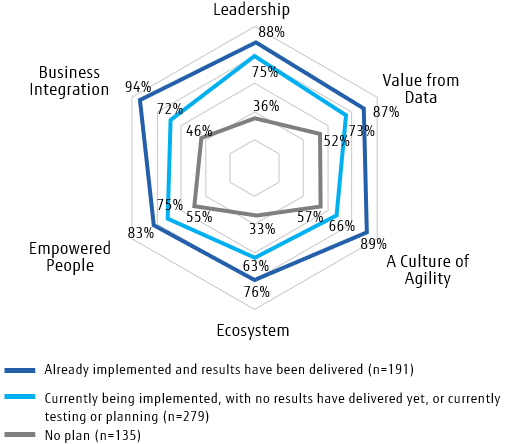
Offline organizations (n=605)
Digital muscles and effective response to the pandemic
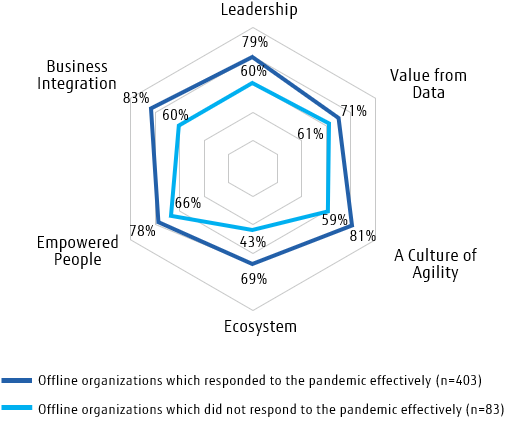
Offline organizations (n=486)
Priorities in the post-pandemic world
Resilience is perceived as the top business priority in the post-pandemic world. The other priorities are business process automation, data-driven management ,a seamless customer experience where online merges with offline and human-centric management. And purpose-driven management, trust from customers and communications and ecosystem business model are also chosen as necessary and important key factors.
Top business priorities in the post-pandemic world

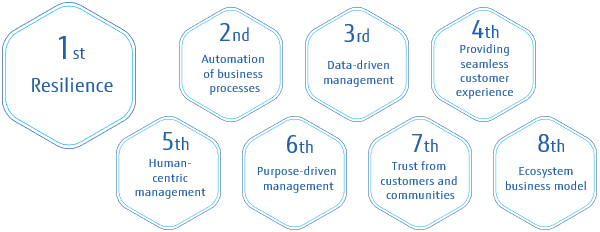
Offline organizations (n=605)
Business process automation was selected as second highest priority. The survey revealed that 44% of respondents from offline organizations predicted that more than half of their current business processes that were not yet automated would be automated by 2025. This result is truly significant, demonstrating business leader’s strong appetite for automating their business.
Percentage of existing business process which are currently not automated and will be automated by 2025
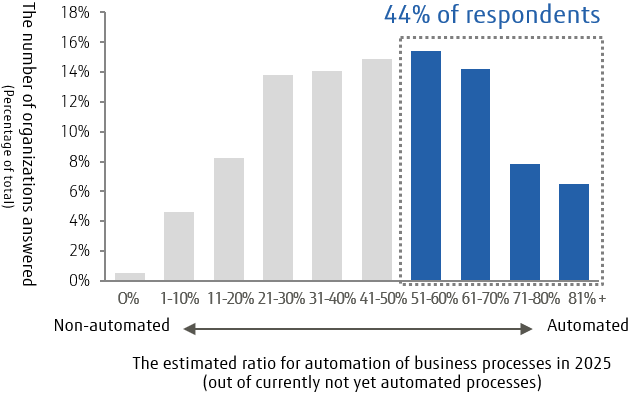
Offline organizations (n=605)
In the extremely uncertain environment, data has increasingly become more important in making business decisions. In this survey, 83% of respondents from offline organizations agreed with the importance of data-driven management to remain competitive.
Data-driven management is essential to stay competitive
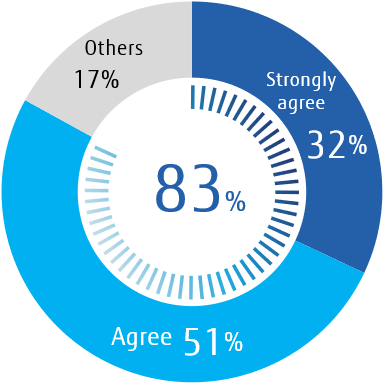
Offline organizations (n=605)
Download Global Digital Transformation Survey Report
Organizations will have to embrace new priorities to cope with a radically different business environment. We hope insights from this survey will help business leaders develop their vision and strategies.
More insights can be discovered in our full report, including the challenges when implementing business initiatives and the factors for success.




